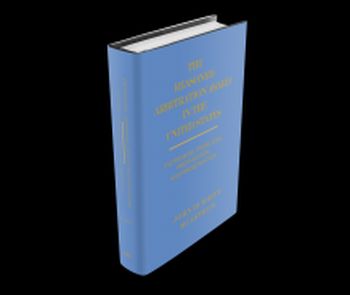
The Reasoned Arbitration Award in the United States examines a continuing, serious problem with reasoned awards in U.S. domestic arbitration. A series of prominent cases demonstrate that arbitrators too often issue unreasoned awards, awards that are just "standard" awards masquerading as reasoned awards. Such unexplained awards would be unacceptable in international practice. But many U.S. courts still treat these awards as reasoned when they are challenged. John Burritt McArthur explains that much of the continuing lure of unexplained awards in U.S. arbitration stems from the misconception that awards that minimize reasons are less prone to challenge, and quicker and cheaper to write, and therefore more desirable than reasoned awards. He demonstrates that such beliefs are ill-founded. Nonetheless, awards that only hint at their reasons – in other words, awards reasoned in name only – today are repeatedly approved as reasoned under the logic of the leading opinion on how to test awards for reasons, the Eleventh Circuit’s 2011 opinion Charter LLC v. Schurtenberger, 646 F.3d 836 (11th Cir. 2011). The Eleventh Circuit’s opinion encourages confirming awards that say so little that they really explain nothing. Cat Charter paradoxically has increased challenges to the form of awards, because the opinion holds that reasoned awards can be vacated if they lack reasons, at the same time that its test guarantees that almost all of those challenges will fail because the test accepts almost anything as “reasoned.” The result is that parties in U.S. domestic arbitration risk never getting reasons when they want them. The book provides a clear definition of “reasoned award” that should end this problem. The book also explains, in six “how-to” chapters, how to write a properly reasoned section in each part of the award.
The Reasoned Arbitration Award in the United States addresses the major problem created by the lack of a clear, effective definition of reasoned awards. It analyzes in detail the unreasoned awards that courts, beginning with the Eleventh Circuit in Cat Charter, have confirmed as reasoned. And it explains in detail, section by section, how to write a properly reasoned award. The book:
This thought-provoking work argues persuasively that the effectiveness and desirability of arbitration is at stake in the current disarray over reasoned awards because it is only through truly reasoned awards that arbitrators can give the parties proof that they have been heard.